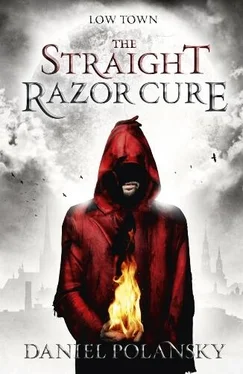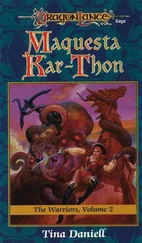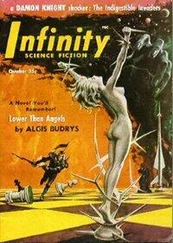Daniel Polansky - Low Town
Здесь есть возможность читать онлайн «Daniel Polansky - Low Town» весь текст электронной книги совершенно бесплатно (целиком полную версию без сокращений). В некоторых случаях можно слушать аудио, скачать через торрент в формате fb2 и присутствует краткое содержание. Жанр: Фэнтези, на английском языке. Описание произведения, (предисловие) а так же отзывы посетителей доступны на портале библиотеки ЛибКат.
- Название:Low Town
- Автор:
- Жанр:
- Год:неизвестен
- ISBN:нет данных
- Рейтинг книги:3 / 5. Голосов: 1
-
Избранное:Добавить в избранное
- Отзывы:
-
Ваша оценка:
- 60
- 1
- 2
- 3
- 4
- 5
Low Town: краткое содержание, описание и аннотация
Предлагаем к чтению аннотацию, описание, краткое содержание или предисловие (зависит от того, что написал сам автор книги «Low Town»). Если вы не нашли необходимую информацию о книге — напишите в комментариях, мы постараемся отыскать её.
Low Town — читать онлайн бесплатно полную книгу (весь текст) целиком
Ниже представлен текст книги, разбитый по страницам. Система сохранения места последней прочитанной страницы, позволяет с удобством читать онлайн бесплатно книгу «Low Town», без необходимости каждый раз заново искать на чём Вы остановились. Поставьте закладку, и сможете в любой момент перейти на страницу, на которой закончили чтение.
Интервал:
Закладка:
I was nursing the second cup, dark and sweet, when the boy returned. He set the bag of goods on the counter and put the change next to it.
“There are seven coppers left,” I said. “What did you forget?”
“It’s all there.” He wasn’t quite smiling, but there was a distinct upturn to the thread of his lips. “I swiped the pruning knife.”
“Congratulations, you’re a pickpocket. It’s a real exclusive club.” I took an orange from the bag and started to peel it. “Who’d you get the fruit from, Sarah or Yephet the Islander?”
“The Islander. Sarah’s are half rotten.”
I ate a wedge. “Did the Islander have his son or daughter helping him today?”
“His daughter. His son hasn’t been around for a few weeks.”
“What color shirt was she wearing?”
There was a pause. “She was wearing a gray smock.” His quarter grin returned. “But you wouldn’t know if I was right, ’cause you haven’t left the bar yet.”
“I’d know if you tried to lie to me.” I finished off the orange and tossed the peel onto the bar, then set two fingers against his chest. “I’ll always know.”
He nodded without taking his eyes off mine.
I scooped the remaining coins into the purse he had bought and held it in front of me enticingly. “You got a name?”
“The kids call me Wren.”
“Consider this the rest of the week’s pay.” I tossed him the bag. “Spend some of it on getting a new shirt-you look like a bum. Then stop by later in the evening. I might have something for you to do.” He accepted this development without response or expression, as if it were of little importance one way or the other. “And quit thieving,” I continued. “If you work for me, you don’t siphon funds from the neighborhood.”
“What does ‘siphon’ mean?”
“In this context, ‘steal.’ ” I jerked my head toward the exit. “Off with you.” He headed out the front door, though not with any great hurry. I pulled the second orange from the bag. Adolphus’s frown had returned. “You have something to say?”
He shook his head and began cleaning glasses left over from the night before.
“You’re as subtle as a stone. Spit out whatever you’re choking on or quit shooting me daggers.”
“You are not a carpenter,” he said.
“Then what the hell am I doing with this pruning knife?” I asked, flourishing the tool. Adolphus’s brutish lips kept their curl. “All right, I’m not a carpenter.”
“And you are not a blacksmith.”
“Nor was there confusion on that account.”
Adolphus set the tankard down with a start, and in his flash of anger I remembered a day at Apres when those massive arms had cracked a Dren skull as easily as you would an egg, blood and brain bubbling out from white bone. “If you ain’t a carpenter and you ain’t a blacksmith, then what the hell are you doing taking on an apprentice?” He spat this last sentence at me, along with a fair bit of, well, spit.
The void where his left eye once sat gave him an unfair advantage, and I broke contact first. “I don’t judge you for your trade. But it isn’t one a child ought learn.”
“What’s the harm in getting me breakfast?”
Adolphus shrugged, unconvinced. I finished my second orange and started on the apricots in relative silence.
It’s always unsettling when Adolphus is in an ill humor. Partly because it reminds me that if he ever lost his temper it would take half the hoax in the city to bring him down, but mostly because there’s something unpleasant about watching a fat man mope. “You’re in a hell of a mood today,” I began.
The flesh on his face dragged downward, menaced more than usual by age. “The child,” he said.
It was clear he wasn’t talking about the one who had just left. “It’s a sick world, but this isn’t the first we’ve had evidence of it.”
“Who will do right for the child?”
“The guard will look into it.” I could well appreciate what dubious comfort that was.
“The guard couldn’t catch pus in a whorehouse.”
“They called in the Crown. Two agents in their prettiest bits of finery. Even sent for scryers. They’ll find something.”
“If that child has to rely on the Crown for justice, her soul will never know peace.” He let his one eye linger on mine.
This time I didn’t flinch. “That’s not my problem.”
“You will allow her violator to walk free?” The traces of Adolphus’s Skythan accent hardened during his frequent moments of melodrama. “To breathe our air, foul our wells?”
“Is he around here somewhere? Send him over, I’ll find something heavy and brain him with it.”
“You could look for him.”
I spat an apricot pit onto the floor. “Who was it pointing out that I operate on the other side of the law these days?”
“Shrug it off, make jokes, play the fool.” He banged his fist against the counter, setting the heavy wood shaking. “But I know why you went out last night, and I remember dragging you off the field at Giscan, when everyone had fled and the dead choked the sky.” The planks of the bar settled to equilibrium. “Don’t pretend it doesn’t bother you.”
The trouble with old friends is they remember history you’d prefer forgotten. Of course, I didn’t have to stick around and reminisce. The last of the apricots disappeared. “I’ve got things to look in on. Throw the rest of this junk out, and give the boy supper if he returns.”
The abrupt end of our conflict left Adolphus deflated, his fury spent, his one eye drawn and his face haggard. As I left the tavern he was wiping at the countertop aimlessly, trying not to weep.
I started out from the Earl in a sullen mood. I rely on Adolphus for a dose of morning levity and felt ill equipped without it. Between that and the foul weather, I was starting to wish I’d kept to my original inclination and spent the rest of the afternoon wrapped in bed and burning dreamvine. Thus far, the best that could be said for the day was that it was half over.
Last evening’s unexpected encounter had interfered with my intention of visiting the Rhymer-a circumstance I needed to rectify. He’d forgive my absence, likely he’d already heard the reason, but we still needed to speak. This time of day he’d either be working the docks or up at his mother’s house. His mom had a tendency to try and set me up with women in her neighborhood, so I decided he was at the wharf and hobbled off in that direction, the pain in my ankle proving as reluctant to dissipate as the one in my skull.
Yancey was likely the most talented musician in Low Town, and a damn good contact besides. I had met him during my time as an agent-he was part of a clique of Islanders that performed at balls for court officials and aristocrats. I helped him out of a bust once and in return he started to pass me information-little shit, background chatter. He never rolled on anyone. Since then, our career trajectories had trended in opposite directions, and these days his skills were in request at some of the most exclusive gatherings in the capital. He still kept his ears open for me, though the uses to which I put his intelligence had changed.
The irony of the situation was not lost on either of us.
I found him a few feet off the west quay, surrounded by a handful of indifferent bystanders, playing a set of Kpanlogo and spouting the rhythmic poetry for which he was named. For all his skill, Yancey was about the worst street performer I’d ever seen. He didn’t take requests, he set up in spots unused to traffic, and he was surly to onlookers. Most days he was lucky to make a few coppers, a modest reward indeed for a man of his abilities. Still, he was always cheery when I saw him, and I think he got a kick out of displaying his dizzying abilities to an ungrateful public. He made enough coin playing to the upper crust to make whatever he got busking meaningless anyway.
Читать дальшеИнтервал:
Закладка:
Похожие книги на «Low Town»
Представляем Вашему вниманию похожие книги на «Low Town» списком для выбора. Мы отобрали схожую по названию и смыслу литературу в надежде предоставить читателям больше вариантов отыскать новые, интересные, ещё непрочитанные произведения.
Обсуждение, отзывы о книге «Low Town» и просто собственные мнения читателей. Оставьте ваши комментарии, напишите, что Вы думаете о произведении, его смысле или главных героях. Укажите что конкретно понравилось, а что нет, и почему Вы так считаете.











